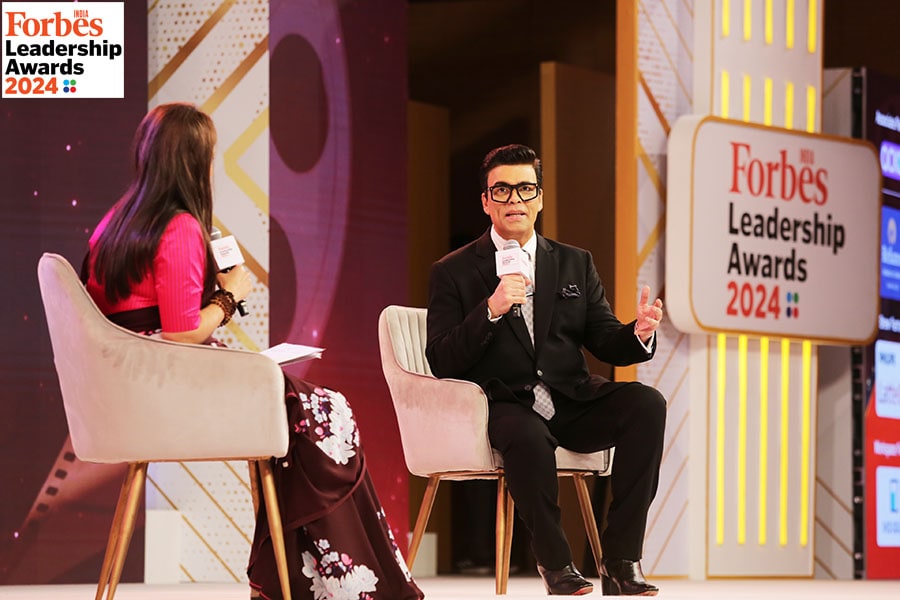
'If I had to make My Name is Khan or Kabhi Alvida Naa Kehna today...': Karan Johar at FILA 2024
At the Forbes India Leadership Awards 2024, the filmmaker spoke about being on anxiety medication, Bollywood being a soft target, and how the filmmaking universe has changed after the pandemic
 Filmmaker Karan Johar
Image: Forbes India
Filmmaker Karan Johar
Image: Forbes India
Filmmaker Karan Johar fielded a range of questions—and of course, a rapid fire—at the Forbes India Leadership Awards 2024, held in Mumbai on March 7.
Dressed in a dapper black-and-white ensemble, Johar, who celebrated 25 years in filmmaking recently, sat down with Palki Sharma, managing editor, Firstpost, at the glittering awards night.
Since the Covid-19 lockdown, there’s been a marked change in the way people watch films, and in the kinds of movies that draw people into theatres. Johar, who heads Dharma Productions and straddles the worlds of big-screen cinema and OTT, spoke about ‘The New Order of Cinema’, among aspects of his own journey.
Edited excerpts:







